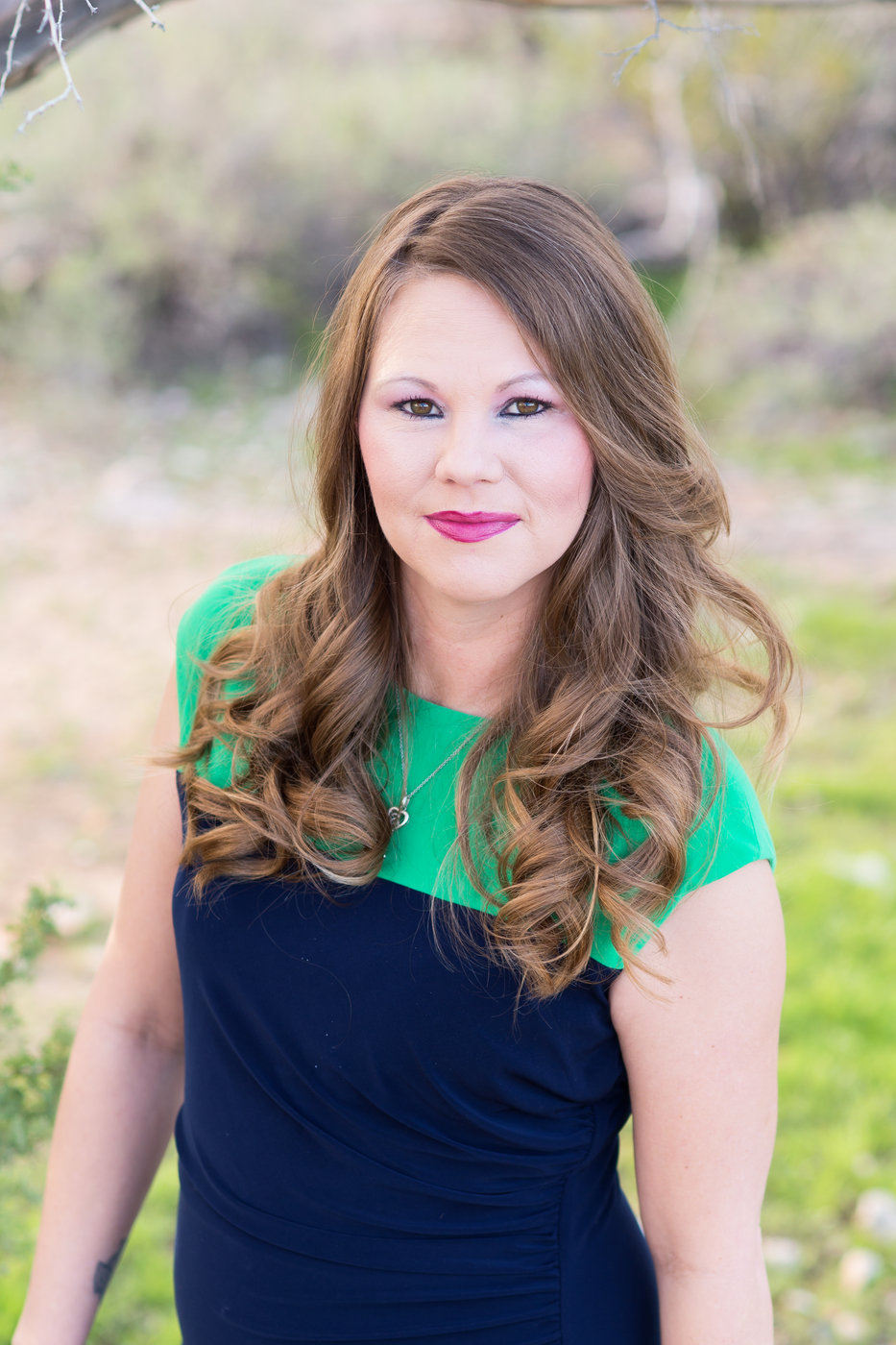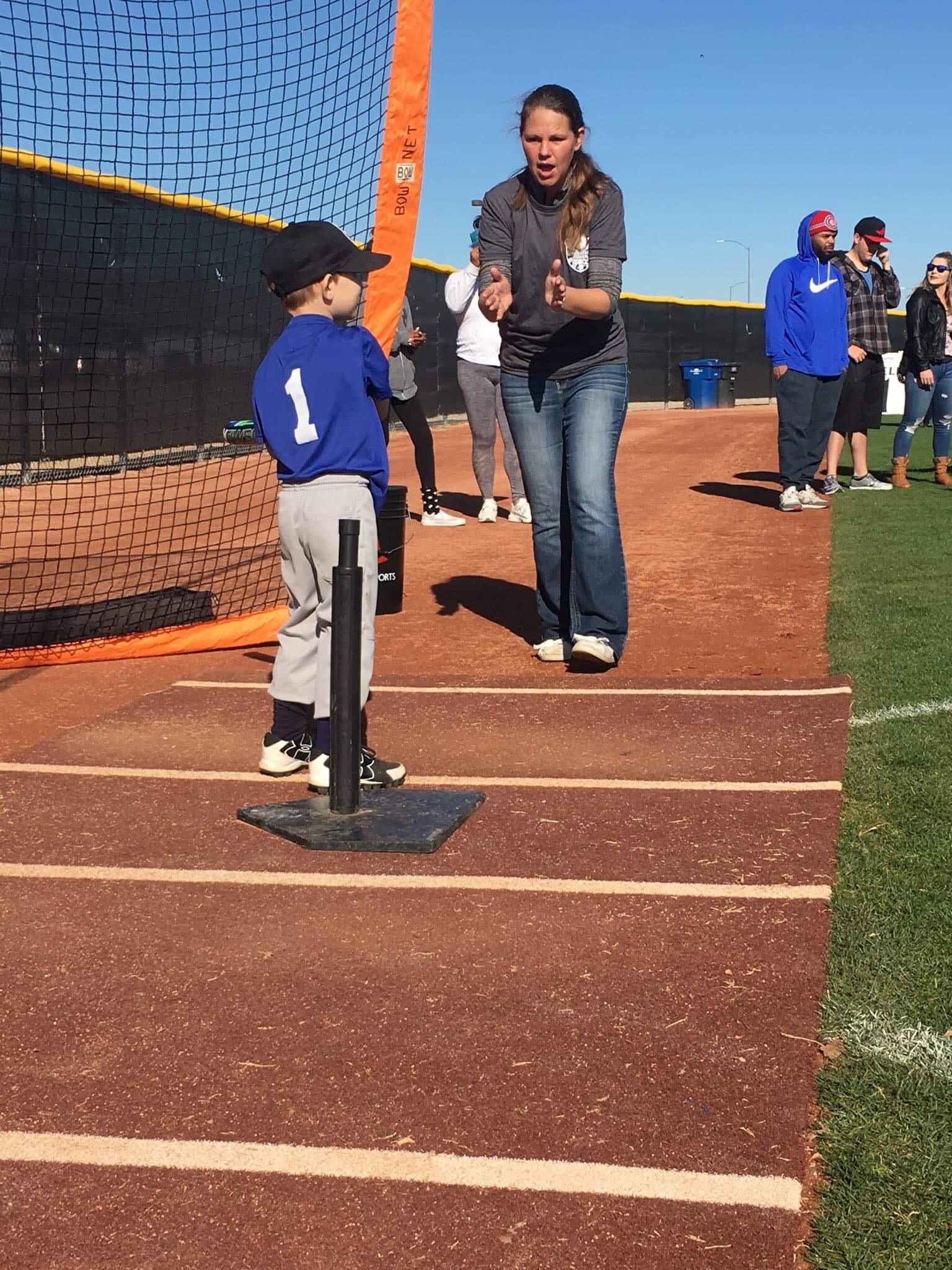
- 15195 Views
- 06/10/2019
- April Morganroth
There you are coaching an entire team of 4- and 5-year-olds who are just learning how to play the game when you walk to the sidelines and you hear it. Some parent is whispering to another that you seem to be showing favoritism to your child. If I were a man, some may even call it “daddy-ball.” Now what? How do you engage with those parents as a coach mom? The truth is, even engaged in a coach’s role, we still have to be a parent. Coach’s kids love to push boundaries.

I’ve coached all three of my boys in the 4-and 5-year-old tee-ball division since my oldest was 4-years-old and have since moved up with him, so I’ve developed some techniques to subtly address the issue of favoritism.
The sad truth is, even the best of coaches will ultimately be accused of playing favoritism with their child. I’ve uniquely witnessed this both as a coach mom and as a sports mom. The number one tactic every youth sports coach has in their tool belt when coaching their own child’s team is their spouse and, or the child’s other parent. It’s an entire family effort. Yes, that even means getting siblings to help out on the field during practices and games.
I learned pretty early in my coaching career just how vitally important pre-season parent meetings are. These meetings are not usually mandatory from any league, but they do go a long way in setting a good coach-parent relationship. Generally speaking, I ask parents to make every attempt to not bring their child to these meetings because this is a time for the parents to get to know me, get important information, and for us to set the groundwork for a successful season.
Parent meetings are essential, Not just mundane
First and foremost, I lay out my credentials so the parents can immediately see just how passionate I am about coaching THEIR children. Coaches, be careful when doing this because you don’t want to come across as “braggy.” I find that most parents will let you be the coach with little to no interference when you present your “sports resume”.
It must be done with lightheartedness and a little humor never hurts. I usually start by telling parents of my first ever track meet as a 100m hurdler where I barely made it to the finish line and end with how I eventually overcame the stigma of “the no hurdle-hurdler” to being a state champion. It’s usually filled with a lot of laughter. That opens the door to allow me to present my entire sports resume from pop warner sports all the way through college.
But then it’s down to business. It’s during this part where I explain that I make every attempt to rotate the kids through every position. I explain that sometimes we will rotate every inning or every game, but I explain it will depend on the team dynamic. This is where I usually explain my “coach-flow” to parents and introduce them to the kinds of skills, drills and practices we will have as a team. The point is to make them feel included so they see there is no intention for favoritism.
When meltdowns happen, give a helping hand
It never fails, at some point, one of my darling Sandlot boys will have a meltdown at a practice or game. It’s usually my youngest when I tell him we are giving his teammate a turn to play his favorite position. I will physically take his hand and walk him through the rotation to his new position. He often will throw himself down and start crying, but that’s NORMAL for any 5-year-old. In a moment you HAVE to be MOM and COACH.
As a mom, you firmly tell your child they have no choice, perhaps you attempt to reason with them saying they will get to play that position again “real soon” after the rotation. As a coach, you have to reassert that everyone gets fair time playing every position. It’s hard, a lot harder than anyone can imagine. What does a mama do? You call in backup.

That’s when I use my secret signal to my husband or one of my other two sons to come help me with my very upset 5-year-old. My oldest can easily convince my youngest there is fun in other positions. My middle son is a helpful distraction and will chase bugs with his brother. Which is just long enough to get everyone rotated and gives him time to calm down. Then it’s back to playing ball.
But, there are those times when a gentle nudge from an older sibling won’t work. Usually, it’s those nap-time game times when it’s hot out and everyone is just cranky. That’s when you call in the big gun, also known as daddy. Sometimes having daddy get in the ready position next to him or giving him a hug is exactly what an unhappy child needs. If not, then daddy certainly can remove him from the ball field for a small water or restroom break.
What if daddy is coaching or watching another child’s game and you have no backup? Cue in the assistant coaches. Yes, I usually have a pre-season conversation with my assistant coaches. No doubt they have experienced the difficulty of coaching their own child as well. We agree to tag ourselves in to help with each other’s children. When there is a situation requiring me to step away from my head coach role into full mommy mode, my assistant coaches will often step in without blinking. Likewise, I will step in for them and call in back-up help from other parents.
There’s no “I” in team, help the coach out
Parents, please understand that coaches feel an immense pressure to keep our own children under control while developing passion and skills for the entire team. And that’s hard! Sometimes conflicts with our own child or spouse on the field will lead to conflicts at home. Perception of preferential treatment is an unforeseen consequence of coaches “parenting” their child during team practice or games.

Honestly, as a coach, I do raise the bar of expectations for my children in behavior and sportsmanlike conduct only. This can sometimes cause them to misbehave out of frustration. The younger your youth athlete is, the more frequent this can happen. My oldest son recently admitted he is harder on himself when he makes an error because he feels, as the coach’s son, he should perform better. No amount of reassurance truly puts your child at ease.
And let’s be real parents, it’s insanely difficult for our children to see us giving another child the same attention and care. My middle son once admitted that it made him feel less special and loved. We, of course, addressed those feelings with him and he has since overcome those feelings, but just know those feelings are lurking within your own children’s emotions.
Parents can we agree to cut the coach some slack and volunteer to help out on the field or with their child so they can give equal attention to all players on the team? There is no “I” in team and it really does take a village to help all children to succeed.
_____________________________________
April Morganroth is a Multimedia, Print, Broadcast & Digital Journalist. She is also an Anchor & MMJ Reporter at iHeart Media as well as a Baseball Mother, Coach, and Sportlo contributor.





Add Comments